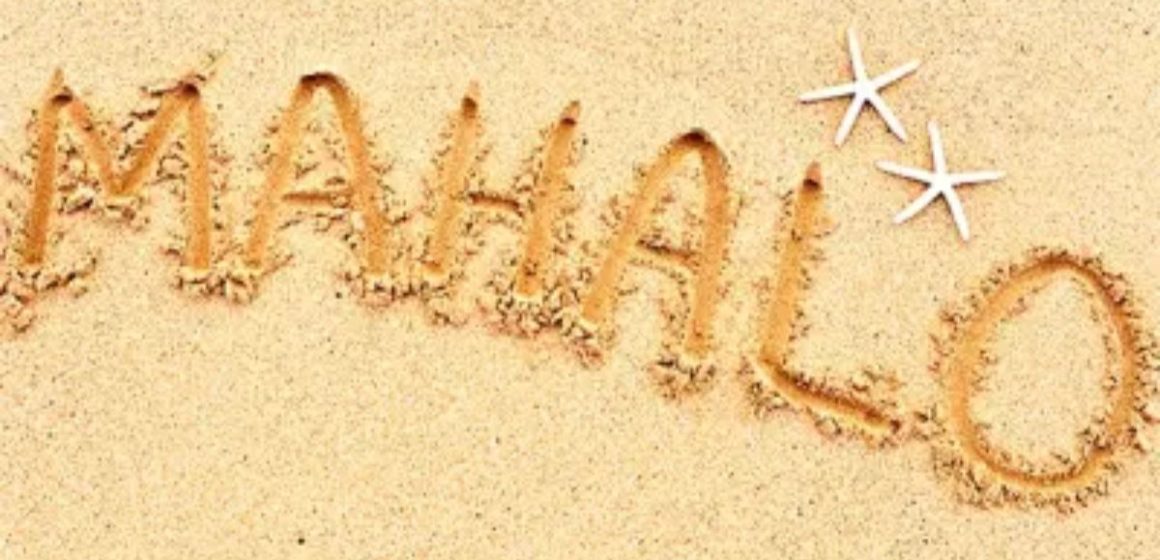Considering traveling to Hawaii? Understand a few phrases and slang terms from the area before packing your baggage. It will enhance your enjoyment of the event and help you establish a stronger connection with the people.
Being able to speak a few key words and phrases in ‘Ōlelo Hawai’i demonstrates respect for the people of Hawaii and their holy land. That may seem intimidating, but worry not—we’ve broken down a glossary of common expressions and lingo that travelers should be aware of before traveling to paradise.
Honu is the Hawaiian word for green sea turtle
The Hawaiian green sea turtle, or “honu” (pronounced hoe-new), is something you might see if you’re fortunate enough to visit the Hawaiian Islands. These marine reptiles are frequently seen sunning at Laniakea Beach on Oahu or Ho’okipa Beach Park, one of the greatest beaches on Maui.
They are the most commonly sighted sea turtle species in Hawaii.The word “honu,” which has its origins in prehistoric Hawaiian petroglyphs, is highly esteemed and valued in Hawaiian culture.
Given that some turtles can live up to 80 years, honu are a symbol for longevity, safety, and good fortune.The Hawaiian word for spiritual energy, “mana,” is likewise represented by the honu.
“Mahalo” is the term for gratitude
The Hawaiian word for gratitude, “mahalo” (pronounced mah-hah-loh), is one word you should know before visiting Hawaii. “Mahalo” is a phrase used to express appreciation, respect, or thanks for what someone has done or given to you.
Travelers are free to use it whenever they like, whether they are paying for something or expressing gratitude to a waiter. However, visitors to Hawaii should be aware that “Mahalo” means more than just “thank you”; it also refers to a broad appreciation for one’s surroundings or those who are dear to them.
For real foodies, “Ono Grinds” is the ideal term
It’s general knowledge that “‘ono grinds” (pronounced oh-no grinds) is great meal for visitors who want to sample all the amazing local cuisine the Hawaiian Islands have to offer. The word used in the sentence is common vernacular from Hawaiian pidgin, which dates back to the 1800s on the islands.
Hawaiian pidgin originated as a means of communication between Japanese, Chinese, Portuguese, and English laborers on sugarcane farms.
Both “‘ono’ and “grinds” can refer to food or a meal; “‘ono” describes something very good. Visitors may see instances when the term “ono” is used without the ‘okina mark—officially recognized as a Hawaiian consonant, but sometimes referred to as a reverse apostrophe.
“Ono” (without the ‘okina) refers to a fish that resembles mackerel and is frequently offered on Hawaiian menus.
Read Also: Massachusetts’ Best-Kept Secrets: Underrated Small Towns Worth a Visit
“A hui hou” is an additional farewell phrase
In Hawaii, saying “goodbye” is equivalent to saying “a hui hou,” a word that visitors to the Hawaiian Islands will probably hear frequently. “A hui hou” (pronounced ah-hoo-wee ho) is another way to say “until we meet again” or “see you soon.”
In Hawaii, saying farewell is fraught with superstition because people there customarily refrain from suggesting that they might not see friends or loved ones again.
For Hawaiians, “a hui hou” is also a significant component of funeral customs. The Hawaiian people place great importance on family, which is widely regarded as the cornerstone of their society.
Read Also: Experience the Vibrant Nightlife of America’s Hidden Gem: The ‘Paris of the Plains’
Kapu means to stay outside
Visitors who are interested in taking on one of Hawaii’s many adventurous treks (one walk was so well-known that it was eventually closed) might look for signs that say “kapu” (pronounced kah-poo).
In Hawaiian, the phrase means “keep out” or “forbidden.” It is frequently written on signs in front of closed off regions or private pathways.
In Hawaiian culture, “kapu” also implies sacred. Historically, the term was frequently used to refer to particular religious structures or highly esteemed locations.
The kapu system, which was in place for centuries, was a set of rules in Hawaiian that members of each social class were supposed to abide by.
Read Also: Discover Magic: Whimsical New Hampshire Towns Worth Seeing
To Conclude
Adding these essential phrases and slang terms to your repertoire before you travel to Hawaii will improve your experience and show that you respect the local way of life.
You’ll strengthen your ties to Hawaii’s people and locations by becoming familiar with and using these phrases, making lifelong memories.



Leave a Reply